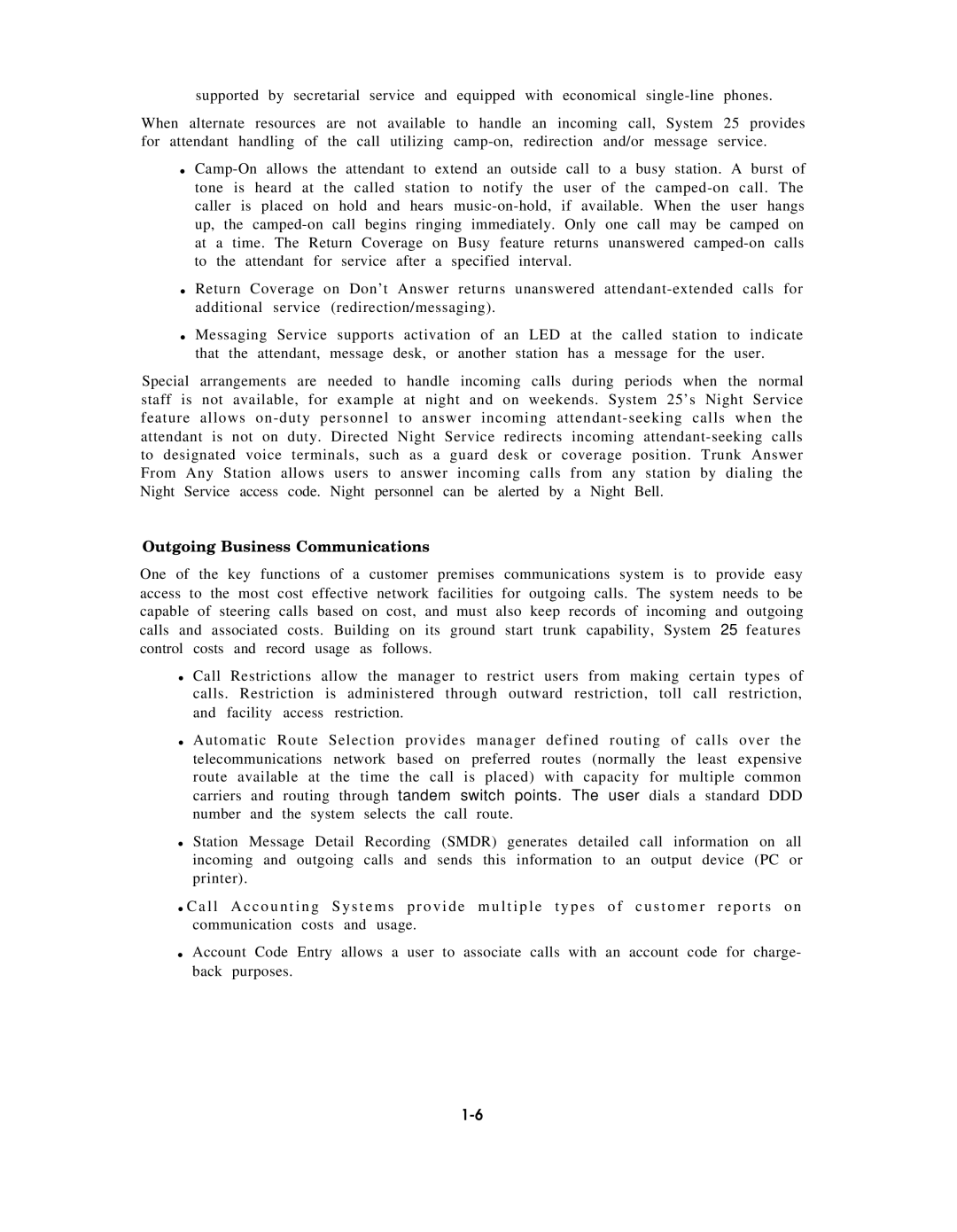supported by secretarial service and equipped with economical
When alternate resources | are | not | available | to handle an incoming call, System | 25 provides |
for attendant handling of | the | call | utilizing | service. |
●
tone is heard at the called station | to notify the user of the | ||||
caller is placed | on | hold and hears | |||
up, the | call begins ringing immediately. Only one call may be camped on | ||||
at | a time. The | Return Coverage | on | Busy feature returns unanswered | |
to | the attendant | for | service after | a | specified interval. |
●Return Coverage on Don’t Answer returns unanswered
●Messaging Service supports activation of an LED at the called station to indicate that the attendant, message desk, or another station has a message for the user.
Special arrangements are needed to handle incoming calls during periods when the normal staff is not available, for example at night and on weekends. System 25’s Night Service feature allows
Outgoing Business Communications
One of the key functions of a customer premises communications system is to provide easy access to the most cost effective network facilities for outgoing calls. The system needs to be capable of steering calls based on cost, and must also keep records of incoming and outgoing calls and associated costs. Building on its ground start trunk capability, System 25 features control costs and record usage as follows.
●Call Restrictions allow the manager to restrict users from making certain types of calls. Restriction is administered through outward restriction, toll call restriction,
and facility access restriction.
●Automatic Route Selection provides manager defined routing of calls over the telecommunications network based on preferred routes (normally the least expensive route available at the time the call is placed) with capacity for multiple common
carriers and routing through tandem switch points. The user dials a standard DDD number and the system selects the call route.
●Station Message Detail Recording (SMDR) generates detailed call information on all incoming and outgoing calls and sends this information to an output device (PC or printer).
● C a l l A c c o u n t i n g S y s t e m s p r o v i d e m u l t i p l e t y p e s o f c u s t o m e r r e p o r t s o n communication costs and usage.
●Account Code Entry allows a user to associate calls with an account code for charge- back purposes.
